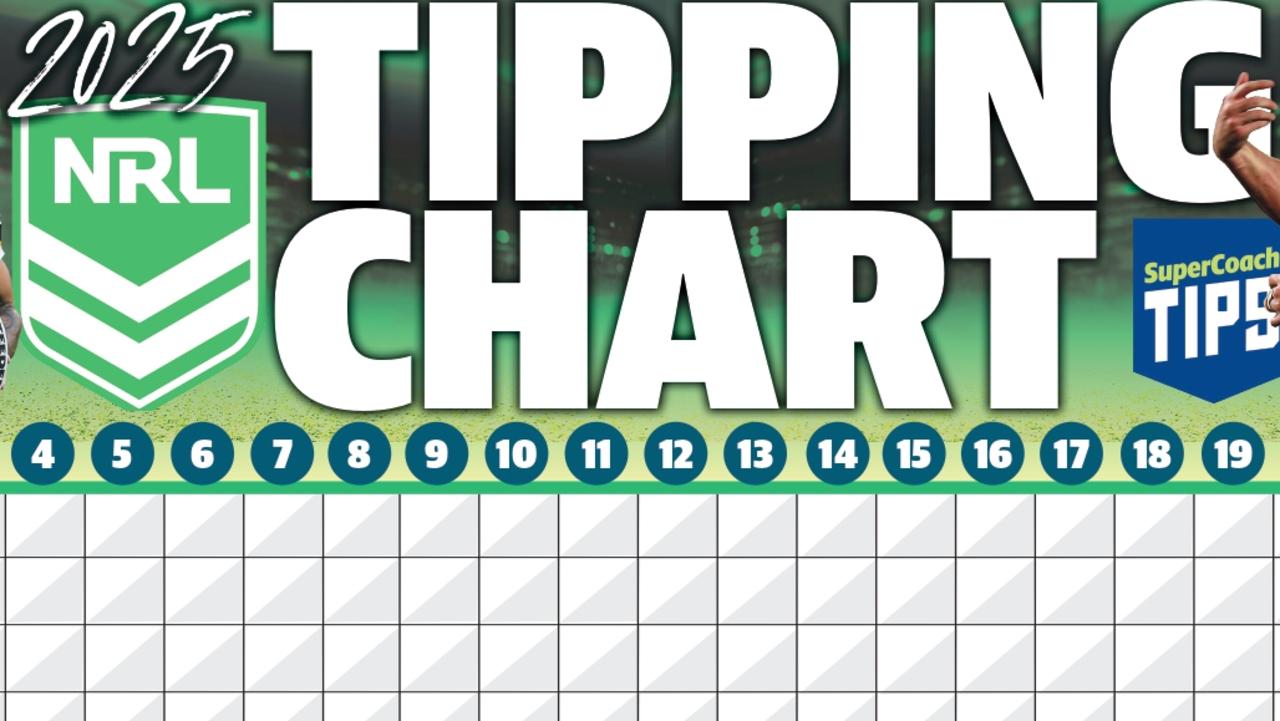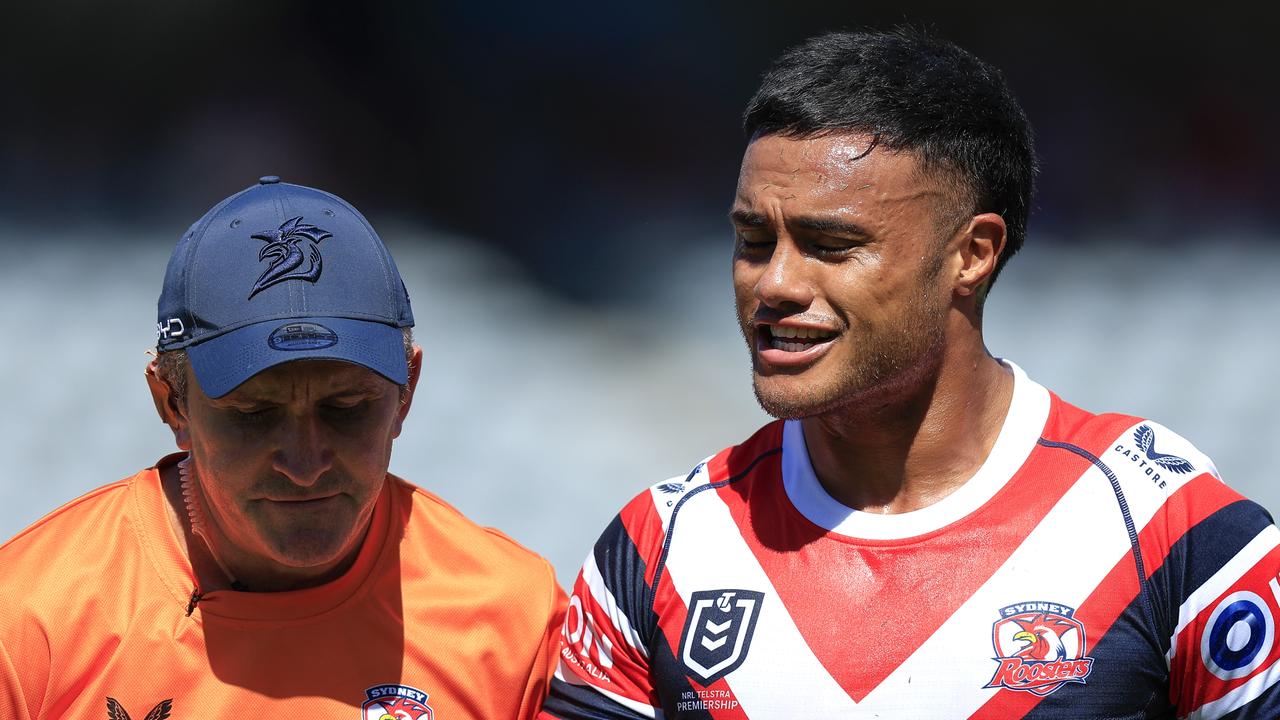Head of football Graham Annesley reveals why the NRL isn’t cracking down on ‘lower grade’ charges
Head of football Graham Annesley has revealed why Cameron Munster escaped punishment for an alleged elbow — watch the video and have your say.
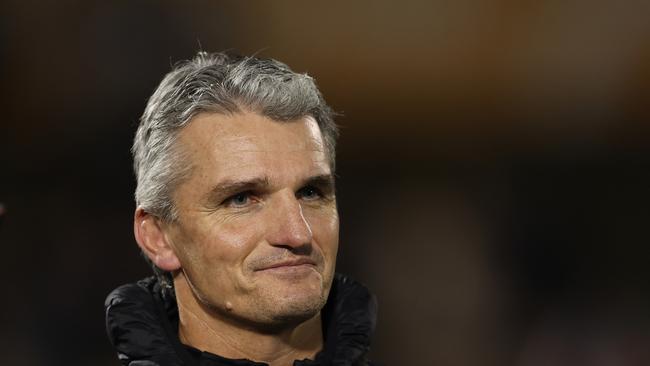
NRL
Don't miss out on the headlines from NRL. Followed categories will be added to My News.
Graham Annesley has revealed Cameron Munster escaped punishment for an alleged elbow to Sam Walker’s face due to ‘insufficient force’, while backing the deterrent capabilities of the judiciary code despite repeat offenders like Nelson Asofa-Solomona escaping suspension.
The NRL’s head of football did warn repeat offenders, like Melbourne’s Asofa-Solomona, were facing ‘personal deterrent’ charges if the MRC and the game’s administrators felt like the message was not sinking in.
The Storm forward has now been charged five times this year, without a ban, and was only issued a $3000 fine after he was charged with grade one dangerous contact for dropping his forearm at the head of Roosters winger Joseph Suaalii.
The Daily Telegraph understands neither the NRL or MRC has considered issuing Asofa-Solomona a personal deterrent charge at any point this season.
“Whenever players are continually offending, they are going to run that risk, the charge could be elevated,” Annesley said.
Stream every game of every round of the 2022 NRL Telstra Premiership Season Live & Ad-Break Free During Play on Kayo. New to Kayo? Start your free trial now >
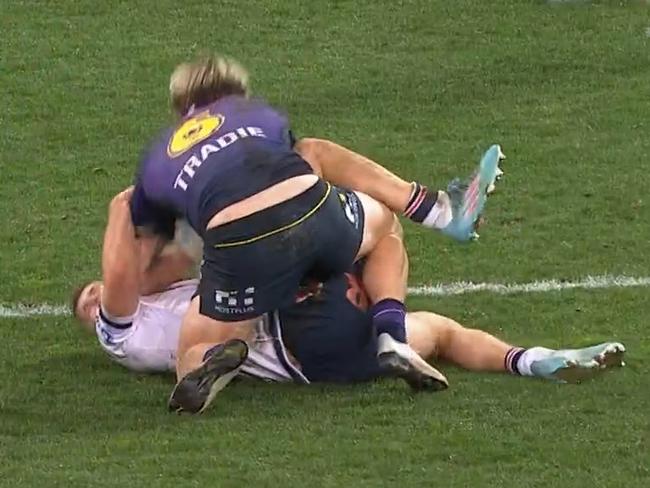
“Some players do play on the edge more than others, Nelson’s not the only one in the competition … whether it’s high tackling or level of aggression they play with.
“A player pushing the boundaries on too many occasions … if the MRC feels they are not getting the message has the right under the rules to say ‘you need a stronger personal deterrent therefore your grade one charge will be elevated to a grade two charge’.”
The NRL can also direct the MRC to issue a ‘general deterrent’ if it believes a broader issue in the game needs to be addressed with harsher punishment, like niggle or foul play.
Annesley said it was too late in the season to crack down on lower grade charges, like Asofa-Solomona’s on Suaalii.
“Not at this stage of the season, we’re at a pretty critical point of the competition,” Annesley said.
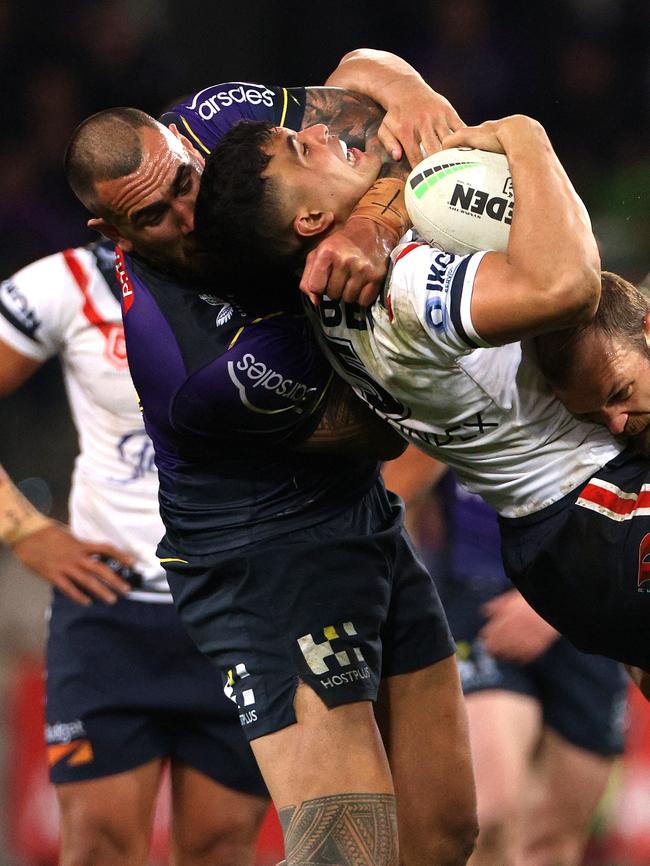
“We have seen some really tough games and they are going to get tougher but that doesn’t excuse any foul play. If they breach the rules, they can expect to have to pay the penalty.”
While, Munster’s unpunished elbow on Roosters halfback Walker led to an outcry on social media, the MRC deemed the contact as ‘mostly to the shoulder and chest’ and the Storm five-eighth was only issued with a Concerning Act Notice.
“In their view there wasn’t sufficient force in this incident to warrant the laying of the charge,” Annesley said.
“What the MRC looked at here … Cameron is trying to get up to play the ball quickly, there is no doubt he makes a movement that is unnecessary towards Walker … their view is his arm fell largely on the shoulder and the chest, maybe some glancing contact with the face as opposed to down directly on the head.
“It can look different from one angle to another.”
Annesley was comfortable with the MRC’s ruling but said he wouldn’t object had Munster been charged for the ‘unnecessary contact’.
The NRL overhauled the judiciary code at the start of the season to get rid of the controversial loading system which saw players miss games for minor offences due to carry over points.
Under the new code, lower grade charges and first time offences now carry a fine, except for a reckless high tackles.
That system has seen Asofa-Solomona whacked with just over $11,000 in fines this season.
But under the old code, Asofa-Solomona would have been suspended three times this year given players faced a ban rather than a fine after their third offence.
Annesley said the new code was providing enough of a deterrent for players.
“The players don’t like fines, that has been made clear to us by the RLPA. They prefer we go back to a system that wholly involves players missing games,” Annesley said.
“But who suffers from that? The fans and the teams. Regardless of what your salary is, I don’t think there are too many people who willingly hand over $1000, $2000 or $3000 out of their pay packet.”
NRL: TEAMS HAVE RESPONSIBILITY TO FIELD BEST 13
The NRL’s head of football Graham Annesley said clubs have a ‘responsibility’ to field its best players as Penrith prepare to rest up to 13 stars for their final-round clash against North Queensland.
But Annesley was quick to point out Ivan Cleary, or any other coach, were within their rights to pick from all available players within their respective squads.
“They do have a responsibility to field their best players as much as possible. But of course if a player is going to benefit from not playing because of niggling injuries then that is not something the NRL will get involved with,” Annesley said.
“But if (the players) have come from their squad they are entitled to pick whoever they want. We don’t get involved in that.
“These are club decisions but they have to think about the fans as well and they have to think about what cohesion and momentum they want going into the finals.
“The NRL is not in the business of picking teams.”
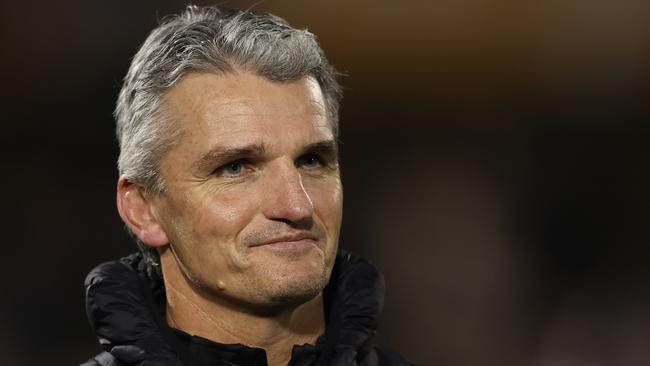
It’s believed Cleary is preparing to rest his players in a bid to minimise the effect of a short turnaround into the first week of the finals series.
The minor premiers anticipate a week one finals showdown next Friday, against either Melbourne or Parramatta, meaning a six-day turnaround from the Cowboys clash on Saturday night.
Cleary and the outfit fielded against North Queensland will arrive back in Sydney at 2am on Sunday to start preparations for their title defence.
More recently, coaches have been willing to rest players in the final round of the season.
Annesley revealed the addition of a bye round ahead of the finals series had been discussed in the past but received a mixed reception from clubs.
“Not at the moment,” Annesley said when asked if a bye round is being considered.
“Next year we have a really long season with the introduction of a 17th team, we anchor our grand final on the long weekend in October and we’ll have an early start next year probably based on the final decision on season structure.
“There is not a lot of room in that area.
“They (bye round) are suggestions thrown up in the past, but there has been mixed reception. Not every club will be happy to have a week off.”
More Coverage
Originally published as Head of football Graham Annesley reveals why the NRL isn’t cracking down on ‘lower grade’ charges




